Gaza truce underscores that Hamas remains irreplaceable and can't be knocked out
By Nahid Poureisa
The footage emerging from the besieged Gaza Strip after nearly 16 months of live-streamed genocide speaks volumes about the resilience and defiance of the Palestinian people.
Despite the catastrophic violence inflicted on the Palestinian nation for 471 days, the Gaza-based resistance movement Hamas remains firmly in power, demonstrating an unwavering presence.
This is crucial. While countless scenarios have been floated about replacing Hamas with other Palestinian factions, it is clear now that Hamas was neither eliminated nor weakened.
In fact, as even Western media outlets admit, the resistance movement has only become stronger and recruited a new batch of fighters in recent months in the rebuilding phase.
Despite the genocidal war, which killed nearly 47,000 Palestinians in 471 days, most of them children and women, the Palestinian nation and the Palestinian resistance remained steadfast, sending a powerful message to the occupation and the world.
The moment the ceasefire came into effect on Sunday, Al-Qassam Brigade fighters were seen walking the streets of Gaza, asserting their dominance and sending a resounding message: they will not be erased, and they are the ones holding the line for Palestinian resistance.
Amid the US-funded genocide in Gaza, misinformation campaigns were rampant. The world, particularly the Palestinian people, was led to believe that Hamas was fading and that their exemplary sacrifices would be in vain.
Opportunistic factions sought to take advantage of the situation, hoping to break the backbone of resistance and establish a new order that would weaken Palestine’s fight against imperialism.
Footage shows a Palestinian returning to northern Gaza, raising the Palestinian flag after the ceasefire agreement took effect and the occupation forces withdrew.
— Palestine Highlights (@PalHighlight) January 21, 2025
Follow us on Telegram: https://t.co/fvRn3KuApw pic.twitter.com/UHms2e6iry
But the true beneficiaries of these misleading narratives were not the Palestinian people or the resistance axis. Instead, regional powers, alongside the Western powers, were the ones who hoped for the demise of Hamas and the defeat of Palestinian resistance.
Let's examine the timeline of events and how it all unfolded:
On November 11, 2023, then-Iranian President Ebrahim Raeisi addressed the summit of Arab and Islamic nations in the Saudi Arabian capital Riyadh with a bold 10-point proposal aimed at ending the Gaza genocide.
The proposal included critical demands such as the cessation of the massacre of civilians, the lifting of the humanitarian blockade, the withdrawal of Israeli military forces, and the establishment of an international court to prosecute the war criminals behind the atrocities.
Additionally, President Raeisi called for the arming of Gaza's population if Israel's crimes continued. This was a clear and principled stance in favor of Palestinian sovereignty, and it emphasized the urgent need to stop the genocide and end the long-standing occupation.
However, despite the humanitarian and moral urgency of Martyr Raeisi’s proposal, the response from certain Arab states was disappointing. Egypt, Jordan, Saudi Arabia, and the UAE—countries that should have stood in solidarity with Palestine—voted against these critical clauses.
Their opposition revealed the deeply entrenched interests of the imperialist powers and their regional allies, who preferred to maintain the status quo of subservience to Zionism and Western influence.
✍️Explainer: What to know about the ceasefire in Gaza and what happens next?
— Press TV 🔻 (@PressTV) January 20, 2025
By @M_Homaeefar https://t.co/GcAHxEAwyy
Just a couple of weeks later, on November 28, German state-run media outlet DW published an article outlining five potential scenarios for Gaza's future after the eventual defeat of Hamas.
These scenarios were indicative of a clear imperialist agenda, with each one focusing on ways to neutralize Palestinian resistance and establish a pro-Western order:
- Israel Takes Control of Gaza: The most extreme scenario involved Israel reoccupying Gaza, a move reminiscent of the period before 2005. Israel would assume full military control.
- Palestinian Authority Governs Gaza: This would see the return of the Palestinian Authority (PA), led by Mahmoud Abbas, to control the besieged Gaza Strip.
- A Joint Administration by the US, PA, Egypt, Saudi Arabia, and the UAE: This scenario envisioned a coalition of Western and regional powers stepping in to govern Gaza. It would represent a significant blow for Palestinian sovereignty and an attempt to replace Hamas with a compliant, puppet regime.
- UN-Led Administration: In this scenario, the United Nations would assume control, establishing a transitional government akin to what was done in Kosovo or East Timor.
- Administration by Arab States: This scenario proposed that Arab countries, particularly Egypt, Saudi Arabia, and the UAE, would step in to govern Gaza.
Back home: Gazans hold on to hope to rebuild
— Press TV 🔻 (@PressTV) January 21, 2025
Ahmed Al-Najjar reports from Rafah. pic.twitter.com/vEPKBOAiEC
These scenarios were designed to dilute Palestinian resistance and pave the way for a new order that would exclude Hamas and impose an artificial peace dictated by imperialist powers.
The aim was clear: to erase Palestinian identity, weaken their resistance, and impose a governance model that would align with Zionist and Western interests.
In January 2025, it became evident that the scenario most feared by the imperialist powers has come to fruition: Hamas and Palestinian resistance have emerged victorious.
The survival and continued presence of Hamas in Gaza, despite the genocide and the relentless pressure from regional and international actors, signify that the Palestinian people will not yield. The plots of the Zionists and their imperialist allies in the West to dismantle resistance have failed, and the struggle for Palestinian sovereignty endures.
The final scenario, which the West had hoped to suppress, is a testament to the strength and resilience of Gaza’s people. Hamas’s popularity and hold over the Gaza Strip is not just a military victory but a symbol of defiance, resistance, and unwillingness to submit to foreign domination.
Despite the interference from those who sought to exploit the bloodshed for their own political gain, the Palestinian people remain resolute in their fight for freedom and justice.
The camaraderie between Palestinians and the resistance fighters was evident on Sunday as Al-Qassam Brigade fighters took to the streets of Gaza and released three Israeli female captives. The crowd in the background loudly cheered for them and hailed them for their heroics.
The imperialist plot to eliminate resistance in Gaza has been thwarted, and the outcome serves as a powerful reminder that the fight for a free and sovereign Palestine will continue.
The resistance axis has not only survived but has become stronger, securing its place as the cornerstone of Palestinian liberation in the face of overwhelming adversity.
Nahid Poureisa is an Iranian analyst and academic researcher focused on West Asia and China.
(The views expressed in this article do not necessarily reflect those of Press TV.)
Historic gold for Iran as teen fencer wins World Cup title
VIDEO | Paris celebrates 47 years of Islamic Revolution in Iran
VIDEO | Killed twice: Palestinian-Americans and the price of silence
VIDEO | Pakistan slams US for publishing map depicting Kashmir as part of India
VIDEO | India-US trade deal faces protests from unions, opposition
VIDEO | 44th Fajr film festival closes with award ceremony in Tehran
North Korea warns of 'terrible response' to drone incursions from South
Whistleblowers: CPJ scrapped 'impunity index' to shield Israel


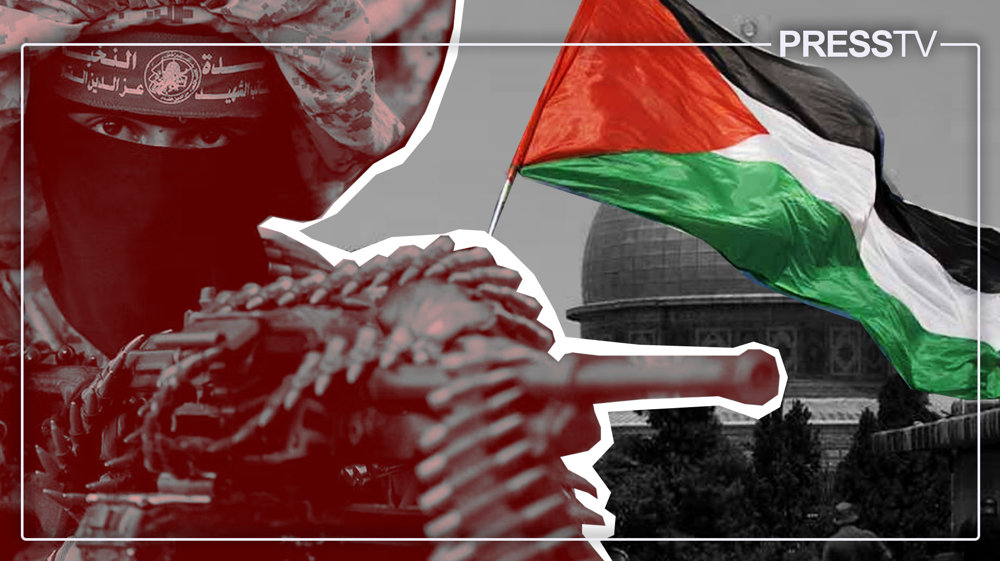
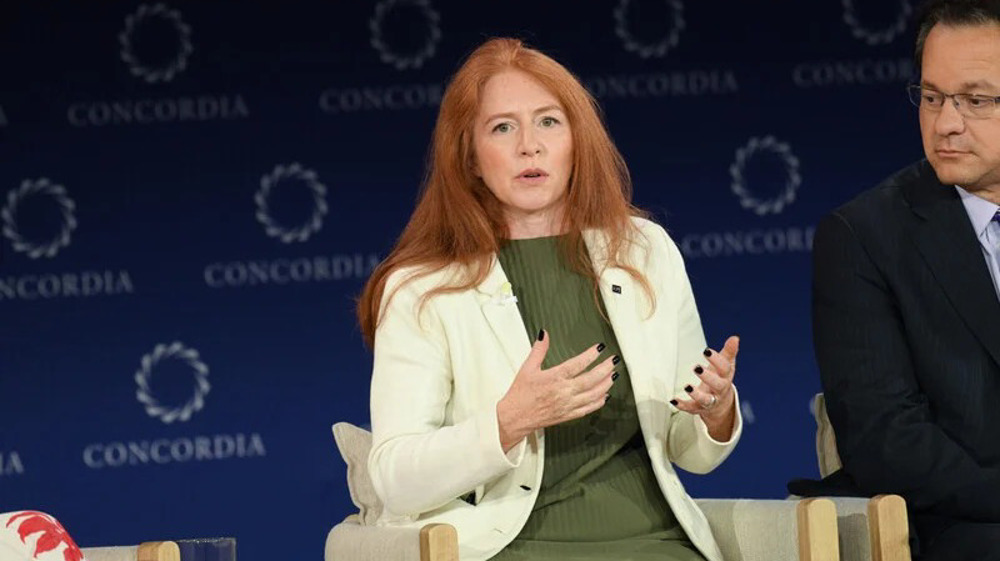
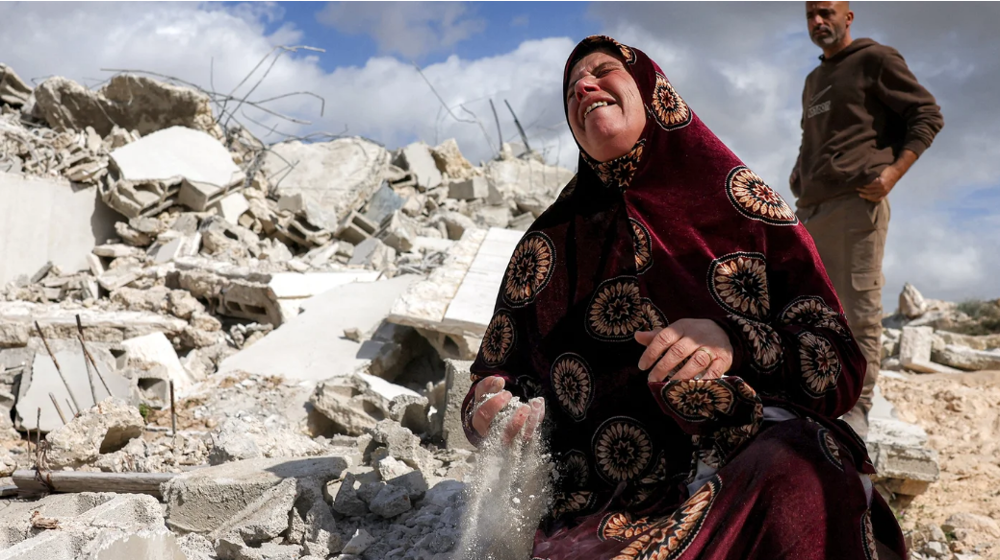
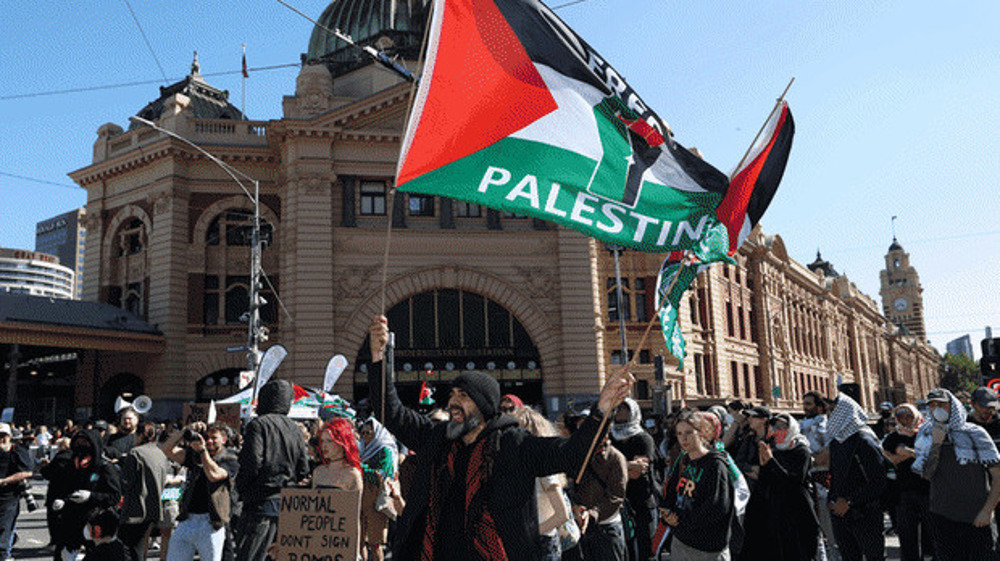



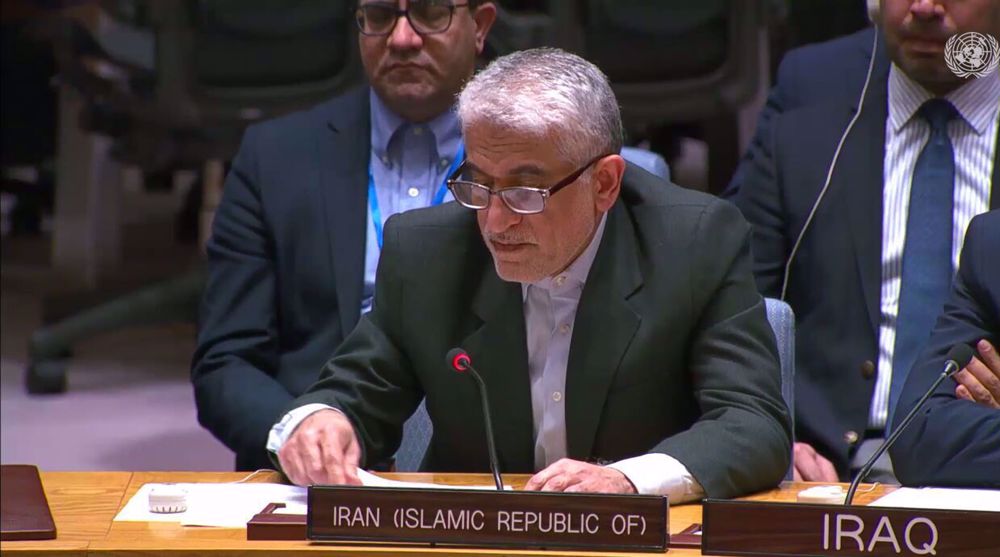
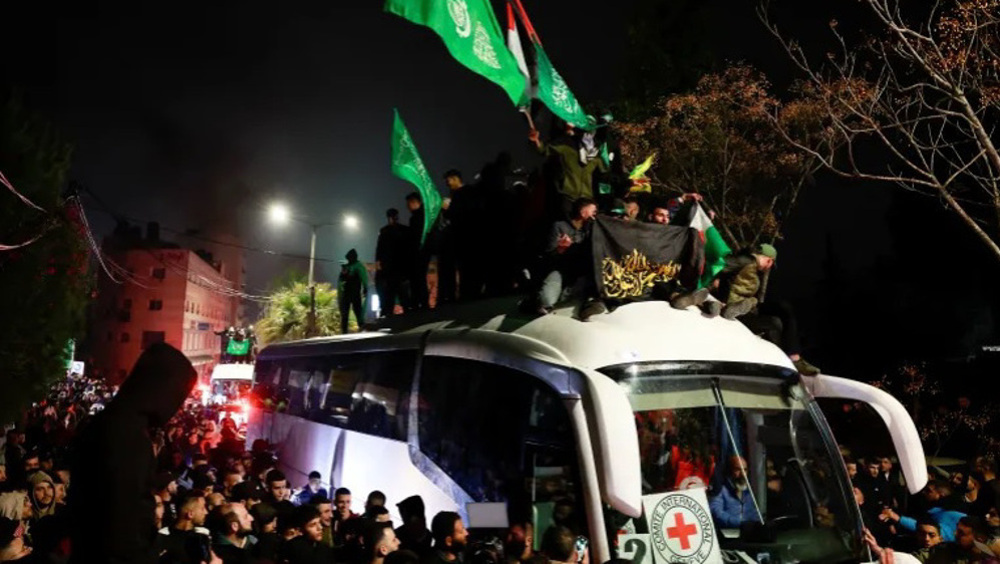
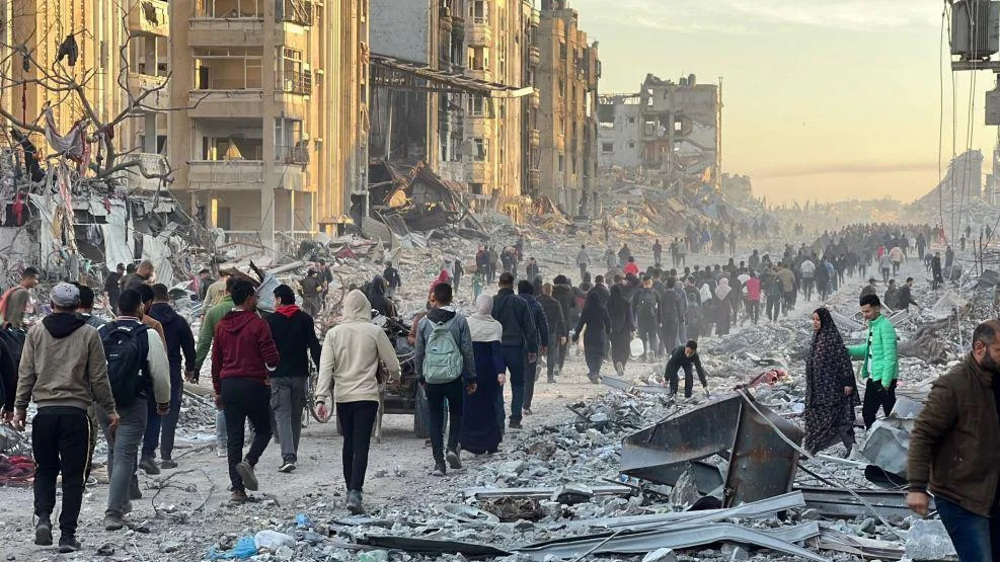
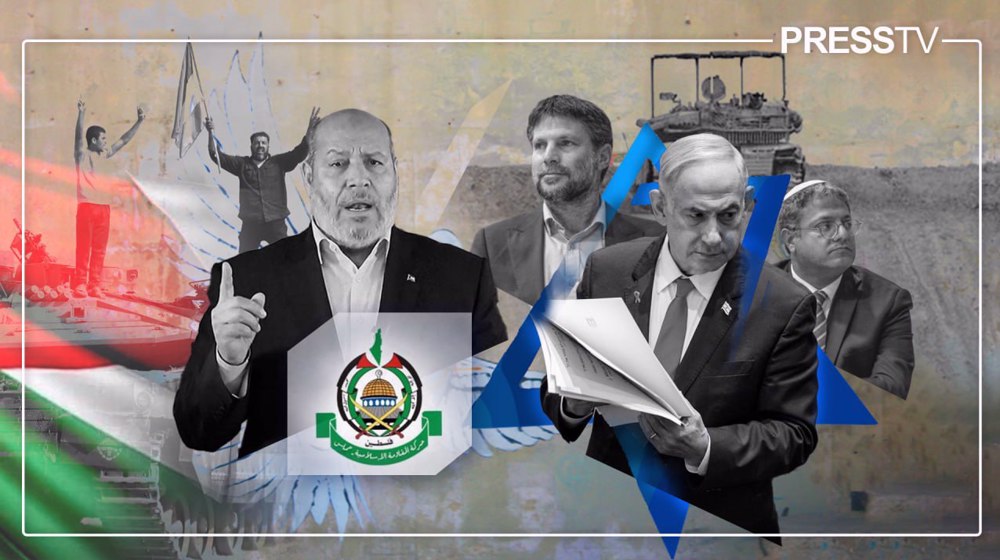
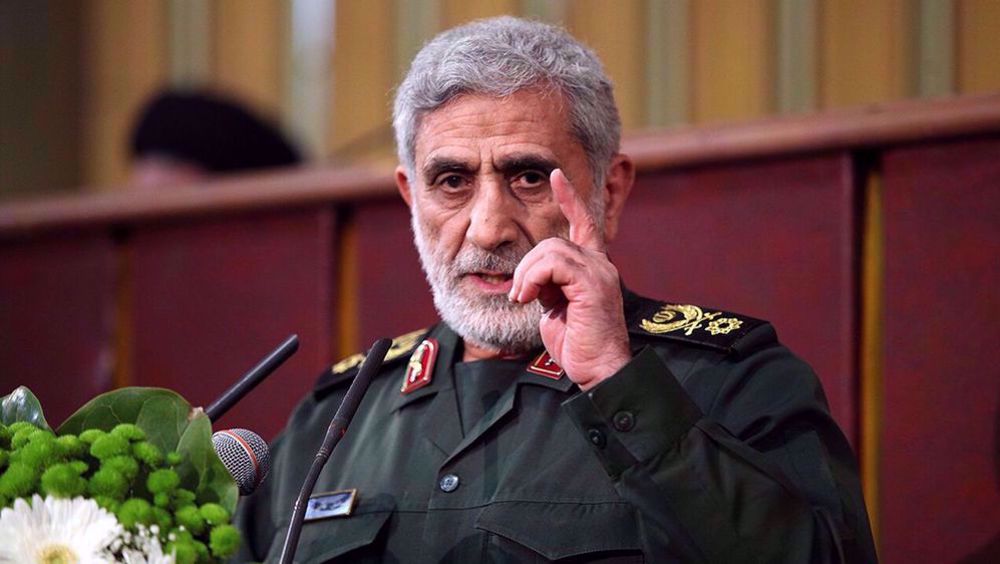

 This makes it easy to access the Press TV website
This makes it easy to access the Press TV website